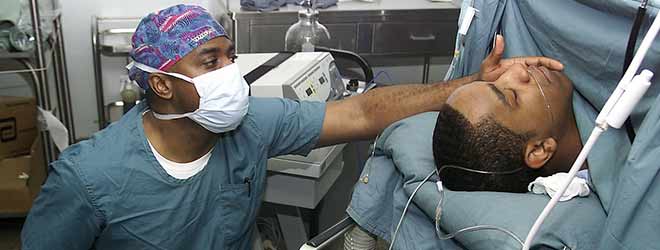Editor’s note: This is the final in our four-part blog series about head and brain injuries.

A brain injury or Traumatic Brain Injury (TBI) is a common injury as a result of falling. According to the Brain Injury Association (BIA) of Rhode Island, falls are now the leading cause of brain injury and the leading cause of brain injury in the elderly. In 2009, over 8,000 Rhode Islanders suffered from some form of head and brain injury.
Who is At Most Risk For a TBI From Falling?
 The risk of TBI is highest among adolescents, young adults and those older than 75. For the younger population of this group, many injuries come from playing sports or recreational activities. For example, many young people are injured from hitting their heads while playing football or falling off a skateboard. Elderly individuals can incur a brain injury from falling on the ground or from tripping over an object. There have also been cases where individuals in wheelchairs have fallen backwards and suffered a brain injury from striking their head. When brain injuries result from an accident, treatment can be extensive and costly.
The risk of TBI is highest among adolescents, young adults and those older than 75. For the younger population of this group, many injuries come from playing sports or recreational activities. For example, many young people are injured from hitting their heads while playing football or falling off a skateboard. Elderly individuals can incur a brain injury from falling on the ground or from tripping over an object. There have also been cases where individuals in wheelchairs have fallen backwards and suffered a brain injury from striking their head. When brain injuries result from an accident, treatment can be extensive and costly.
How is TBI Treated?

Treating a TBI involves a team of individuals working together to provide medical and supportive care. This process could be used for the remainder of the person’s life after the brain injury.
- Initial Treatment: This treatment begins at the hospital when a person is diagnosed with a TBI. If the injury is life threatening, typically a trauma surgeon will render immediate care and coordinate with other hospital personnel. If surgery is required, a neurosurgeon that specializes in the brain and an orthopedic surgeon that specializes in bones might be involved. In addition, once stabilized, the individual will be under the care of trauma nurses and may see other personnel such as a psychologist and social worker to make plans for the duration of the recovery.
- Surgical Treatment: Surgery does not always resolve a TBI, however, a device may be surgically placed in the skull to monitor pressure in the skull. Excess fluids or blood can also be surgically removed or drained. In some cases, bleeding vessels or tissue needs to be repaired and, in the worst cases, a portion of the skull might be removed to reduce pressure on the brain.
- Acute Treatment: This treatment attempts to minimize secondary injury and provide life support. For example, the individual might be placed on a breathing device to control pressure on the brain and prescribed medications to reduce swelling or prevent seizures.
- Rehabilitative: When recovering, the injured individual may undergo rehabilitation to restore lost abilities to move around and complete daily tasks from the help of physical therapists and occupational therapists. Furthermore, medications may be prescribed to control behavioral issues, problems with attention or aggressive behavior by a physiatrist. In addition, a neuropsychologist may also be involved to monitor behavior.
- Continuing Support: Recovery can be ongoing for months and even years after the brain injury. Some individuals can no longer work and need additional help. BIA also sponsors several brain injury support groups at various locations throughout Rhode Island.
Speak With Brain Injury Lawyer
 If you or someone you know suffered a traumatic brain injury from a fall, speak with a brain and head injury lawyer at d’Oliveira & Associates. You may be entitled to compensation for your medical bills, lost income and pain and suffering, among other losses. Our firm charges no legal fees unless you receive a settlement or award. For a free no obligation case evaluation, call us toll-free at 1-800-992-6878 or fill out a contact form online.
If you or someone you know suffered a traumatic brain injury from a fall, speak with a brain and head injury lawyer at d’Oliveira & Associates. You may be entitled to compensation for your medical bills, lost income and pain and suffering, among other losses. Our firm charges no legal fees unless you receive a settlement or award. For a free no obligation case evaluation, call us toll-free at 1-800-992-6878 or fill out a contact form online.


